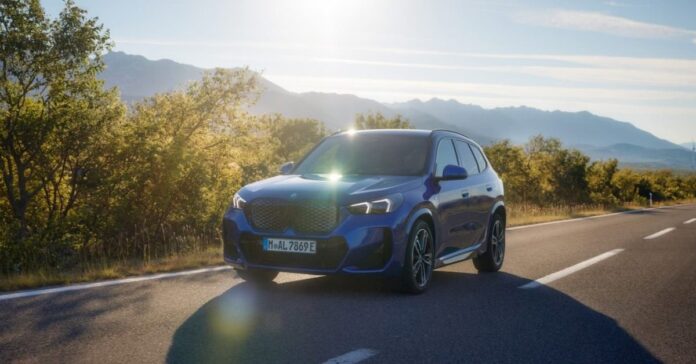BMW Group CEO Oliver Zipse says it’s time to pull the plug on the European Union’s plan to ban ICE vehicles in 2035. Clearly this isn’t the first time we’ve seen pushback, but Zipse is now taking it up a notch, despite EV sales going fairly well for BMW and Mini. What’s going on here?
At this week’s Paris auto show – one of the last few auto shows with any clout – Zipse told reporters said that the EU needs to cancel its plan to ban ICE vehicles in 2035 to reduce reliance on China’s battery supply chain.
In a comment designed to set off alarm bells in Brussels, the BMW CEO now says that the ICE ban is “no longer realistic” because EV sales are much lower than expected, and subsidies for EVs are “unsustainable,” according to Bloomberg.
“A correction of the 100 percent BEV target for 2035 as part of a comprehensive CO2-reduction package would also afford European OEMs less reliance on China for batteries,” Zipse said in a report from Reuters. “To maintain the successful course, a strictly technology-agnostic path within the policy framework is essential.”
In 2023, EU countries approved a landmark law that requires all new cars to have zero CO2 emissions from 2035. As of April 2023, new car fleets sold in the EU have a CO2 emission limit of 95 grams, while vans must not exceed 147 grams CO2/km. Rules will tighten again in 2025, as new cars are limited to 93.5 g CO2/km and vans at 153.9 g CO2/km. In 2030, limits will get stricter, leading to a ban on CO2 emissions on new cars and vans sold in the EU from 2035. Hence, as we get closer to that date, panic among legacy automakers is setting in.
Essentially, Zipse now argues that the European auto market could be victim to a “massive shrinking” and that the ban “could also threaten the European automotive industry in its heart.”
Of course, European automakers are feeling the heat from Chinese automakers, which are taking the lion’s share of the market with their lower-priced BEVs or PHEVs. At the Paris show, nine Chinese brands are unveiling new models, all of which could face EU tariffs of up to 45% to counter what the European Commission argues are unfair subsidies to Beijing to Chinese automakers. Still, European automakers are turning out new EVs to stay in the game, with Chinese brands only representing one-fifth of the brands showing new cars, down from one-half of the brands in 2022.
Still, the mood in Europe is rather pessimistic, with Italy’s prime minister Giorgia Meloni calling the ICE ban “self-destructive.” Germany rejected an early review of the targets, and in Paris, the head of France’s auto association PFA is working on ways to revise the targets.
Sales of BEVs and PHEVs in Europe have dropped 4% in the first nine months of the year compared to last year, while BEVs are seeing a steady 12% increase year-over-year in September. But the European auto market is slowing down in general, with sales dropping 18.3% in August.
And the fact of the matter is that automakers will be forced to pay billions in fines – as much as $16.4 billion – if emission limits aren’t reached. BMW and Mercedes are on track to meet those targets this year, but Volkswagen, Stellantis, and Renault are at risk of coming up short, according to Bloomberg analysis. Of course, Tesla has its emissions credits up for grabs to help work around those fines.
To limit power outages and make your home more resilient, consider going solar with a battery storage system. In order to find a trusted, reliable solar installer near you that offers competitive pricing, check out EnergySage, a free service that makes it easy for you to go solar. They have hundreds of pre-vetted solar installers competing for your business, ensuring you get high quality solutions and save 20-30% compared to going it alone. Plus, it’s free to use and you won’t get sales calls until you select an installer and you share your phone number with them.
Your personalized solar quotes are easy to compare online and you’ll get access to unbiased Energy Advisers to help you every step of the way. Get started here. – ad*


